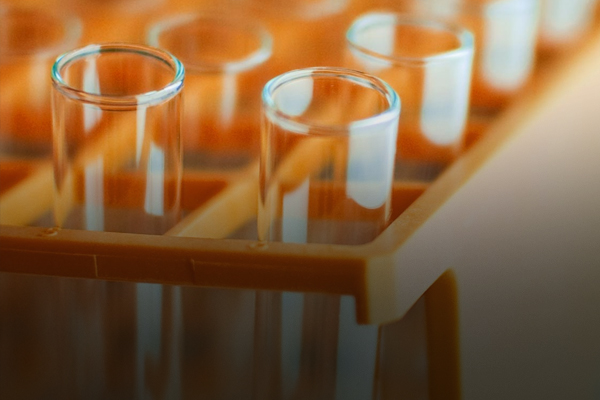
“Wet Artificial Life” projects require a high degree of intelligent human interaction. Scientists must repeatedly create, catalyze, engage or protect aspects of the design process in order to successfully guide the development of the cell. Their interaction demonstrates the critical need for a powerful Creator:
They’re Controlling the Creative Environment
Before scientists can begin to organize and configure the chemical elements required to build the protocell, they’ve got to create a specific environment friendly to the process of creation. This environment does not reflect the harsh nature of the early earth. As a result, these experiments will not provide answers to the question of life’s origin. In controlling the environment in this way, scientists are acting creatively even before the work begins.
They’re Relying on Pre-Existing “Scratch”
Scientists might claim they are creating life from “scratch” but, in reality, they can’t account for how these “scratch” chemicals and nucleotides entered into existence in the first place. We can’t bake without flour, sugar or basic cooking ingredients. The same is true in these experiments. But, how did these cooking ingredients get in the kitchen to begin with? Scientists draw from a well-stocked pantry without questioning the source of these pantry items.
They’re Using Fatty Acids
Most scientists in this field use fatty acids to shape and create the membrane wall for the artificial cell. When scientists use these building blocks (acids), they are already jumping well ahead of the alleged “evolutionary” curve by employing a relatively complex set of biological components. When employing fatty acids in this way, scientists are no longer building life from base chemicals. They are jumping much farther along in the process, and using building blocks that are themselves incredibly difficult to form naturally. The evolutionary process has the burden of having to account for the initial formation of acids such as these in the first place, and these acids are incredibly difficult to account for, given their chance improbabilities.
They’re Controlling the Probabilities
Controlling this numerical probability appears to be a key strategy for these scientists. Many attempt to “kick start” the process necessary for the creation of a genetic system by adding nucleotides in their proper proportions. But this requires a high degree of intelligent interaction. Philosophical naturalists have to imagine a scenario in which a vast number of nucleotides can combine without any outside intervention, and statistical probability models for this are staggeringly prohibitive. There isn’t enough time in the history of the planet for this to occur randomly. Outside of the controlled laboratory environment, unguided naturalism cannot account for the vast assemblage of highly organized genetic material.
They’re Controlling the Proportions
In addition to this, a creative force is required to provide the proper proportions. Even if scientists could create new genetic bases, these bases would still have to be properly arranged if they are ever to amount to anything. The order of bases must eventually provide information. The arrangement is critical and specific; it requires an intelligent, creative mechanism. Naturalism would require tens of thousands of nucleotides to come together in a prescribed order to have enough genetic information to form even the simplest living cell. The mathematical probability is astronomical.
They’re Controlling the Resulting Environment
Finally, scientists admit the resulting protocell is far too fragile to exist in the natural environment of the early earth. In fact, scientists suspect the cell will be weak and unlikely to survive more than an hour in the protection of the lab. The iconic “last universal common ancestor” (LUCA), at the base of the evolutionary tree, appears to be fragile and fleeting.
Artificial life projects repeatedly demonstrate the need for consistent, diligent and aggressive interaction on the part of intelligent agents. These projects fail to replicate the conditions of the early earth or rely upon natural forces alone to accomplish the complex and ambitious biological constructions necessary for primitive life. Wet artificial Life projects demonstrate the need for a powerful, Divine Creator. Artificial life projects repeatedly demonstrate the need for consistent, diligent and aggressive interaction on the part of intelligent agents. Click To Tweet

J. Warner Wallace is a Dateline featured Cold-Case Detective, Senior Fellow at the Colson Center for Christian Worldview, Adj. Professor of Christian Apologetics at Talbot School of Theology, Biola University, author of Cold-Case Christianity, God’s Crime Scene, and Forensic Faith, and creator of the Case Makers Academy for kids.
Subscribe to J. Warner’s Daily Email
J. Warner Wallace is a Dateline featured cold-case homicide detective, popular national speaker and best-selling author. He continues to consult on cold-case investigations while serving as a Senior Fellow at the Colson Center for Christian Worldview. He is also an Adj. Professor of Christian Apologetics at Talbot School of Theology, Biola University, and a faculty member at Summit Ministries. He holds a BA in Design (from CSULB), an MA in Architecture (from UCLA), and an MA in Theological Studies (from Gateway Seminary).


































Pingback: What Do “Artificial Life” Projects Demonstrate About the Need for a Divine Creator? | Cold Case Christianity – Reformed faith salsa style
Pingback: Would the Creation of Artificial Life Prove There Is No God? - Nehemiah Reset